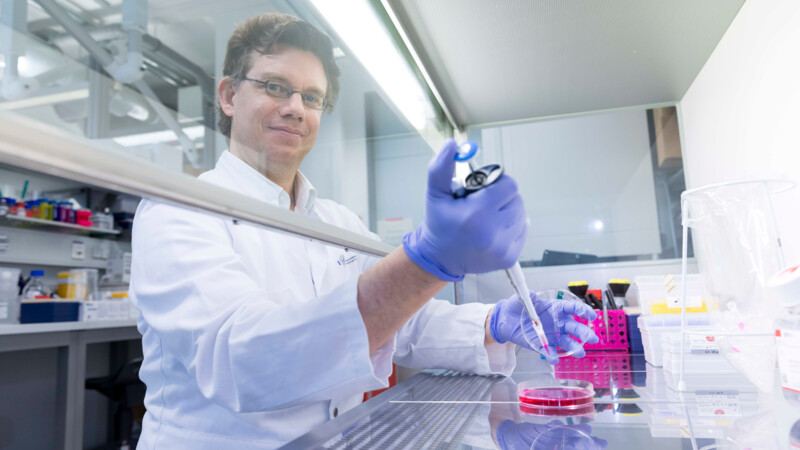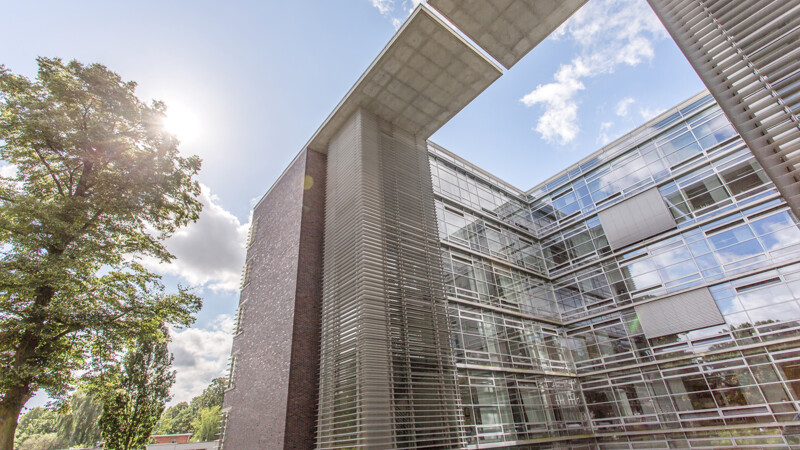Multiple sclerosis (MS) is the most common chronic inflammatory disease of the central nervous system and affects about 2.5 million people worldwide. "Common MS therapies are directed at the inflammatory reaction and have only limited effect on progressive disability," said Prof. Dr. Manuel Friese, head of the Institute of Neuroimmunology and Multiple Sclerosis (INIMS) at UKE.
The German Federal Ministry of Education and Research is putting EUR 1.2 million towards a joint research project by the University Hospital Hamburg-Eppendorf (UKE) and the Fraunhofer Institute for Molecular Biology and Applied Ecology (IME). The project aims to characterize a targeted protein and develop active substances that prevent the death of nerve cells, which are responsible for progressive disability in multiple sclerosis sufferers.
Limited impact of therapies
Prevening decline of nerve cells
The project will investigate certain proteins and newly developed active substances that might reduce the deaths of nerve cells. The active substances could become the first MS therapeutics available on the market. "We want to take the path from the academic idea to the marketability of a new therapeutic agent and thus build a bridge between basic research and clinical application with this project," said Dr. Philip Gribbon, Fraunhofer IME ScreeningPort, and co-ordinator of the project.
sm/pb
Sources and further information
University Hospital Hamburg-Eppendorf (UKE)
Founded in 1889, the University Hospital Hamburg-Eppendorf (UKE) counts among Europe's cutting-edge medical centres and employs over 11,000 staff making it one of the biggest employers in Hamburg. Along with its University Heart and Vascular Center and the Martini-Klinik, the UKE has more than 1,730 beds and treats around 507,000 patients every year. The UKE conducts research mainly in the neurosciences, cardiovascular research, healthcare, oncology, infections and inflammations. The UKE trains around 3,300 physicians and dentists through its Medical Faculty.
More
Similar articles

UKE presents first results of corona study on children and youths

UKE sets up medical website for transgender people

